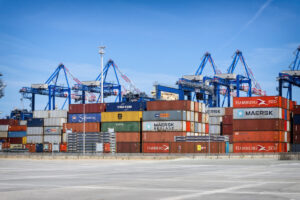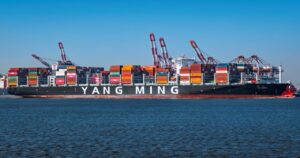Russia has withdrawn from the Black Sea grain deal, a momentous diplomatic agreement brokered by the United Nations (UN) and Turkey that ensures the secure transportation of exports of Ukrainian grains.
The formerly agreed deal came subsequent to the Russian naval blockade of key shipping routes following the breakout of the Ukraine-Russia conflict.
Initially agreed in July 2022, the deal enabled three key Ukrainian ports namely, Odesa, Chornomorsk, and Pivdennyi to transport its grains through the Black Sea, and along a neutral humanitarian corridor towards Istanbul, reported Reuters.
READ: Russia strikes Ukrainian Port of Odesa hours after signing grain deal
The deal was essentially a response to the imminent global food crisis that the world faced as a consequence of several geopolitical factors that were exacerbated by the war, reported The Guardian.
A major sticking point of the deal was its humanitarian objective in providing relief to nations that suffered the most from the conditions of the global food market.
The agreement thus facilitated driving food prices down globally to great effect, with grain exports through the Black Sea to several countries in Africa and Asia.
More notably, however, a separate deal was crucially signed in tandem with this agreement that curtailed the impact of sanctions on the export of goods. It was this contingency that led to the deal’s collapse after President Vladimir Putin argued that the agreement had “lost its meaning”, reported Reuters.
“Initially, the essence, the meaning of the grain deal has a colossal humanitarian significance,” Putin stated in an article released on 24 July on the Kremlin website, further stating that concessions owed to Russia in the deal had not been honoured.
“The West has completely emasculated and perverted this essence, and instead of helping countries in real need, the West used the grain deal for political blackmail.”
READ: Pro-Russian hackers suspected in cyber attacks on Canadian ports
Moscow has claimed that sanctions have not been lifted enough for insurers to comfortably insure Russian vessels carrying food. Russia has also demanded that sanctions be lifted on its main agricultural bank.
Despite this, the UK argued that levels of Russian food exports are higher than they were last year, according to Reuters.
Until a revised agreement is made, ships leaving Ukrainian ports will be viewed as legitimate military targets by Russia’s Defence Ministry. Despite Putin’s self-professed willingness of returning to the deal, The Guardian reported that Russia launched missile and drone attacks on Ukraine’s Port of Odesa, resulting in significant damage to the port’s grain and oil terminal.
READ: US announces new sanctions on Russian vessels and shipping companies
On 24 July, Antonio Guterres, UN Secretary-General called on Russia to return to the Black Sea grain deal in accordance with a proposal he made to President Putin.
Guterres stressed to the UN Food Systems summit in Rome that: “With the termination of the Black Sea Initiative, the most vulnerable will pay the highest price.”
Reuters has indeed reported that since Russia’s recent attacks on Ukraine’s food exporting ports, global wheat and corn commodities have risen sharply.
“I call on the Russian Federation to return to the implementation of the Black Sea Initiative, in line with my latest proposal,” Guterres added.
“I urge the global community to stand united for effective solutions in this essential effort… I remain committed to facilitating the unimpeded access to global markets for food products and fertilisers from both Ukraine and the Russian Federation, and to deliver the food security that every person deserves.”
Earlier this year, Danish shipping giant A.P. Moller – Maersk (Maersk) sold its logistics sites in Russia to IG Finance Development Limited. The news comes as a result of the company’s decision to discontinue its operations in the country amid the ongoing conflict in Ukraine.








